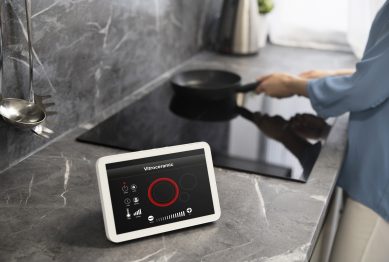In today’s connected world, digital tools are more than just gadgets—they’re windows into our habits. Whether it’s your smartphone, smartwatch, or social media apps, the devices you use daily provide a digital footprint that uncovers your personal routines, preferences, and even your struggles. These tools are more than simple conveniences; they are revealing how we live, what we value, and where we spend our time.

How Your Digital Tools Expose Your Daily Habits
It’s no secret that technology has become integral to daily life. Smartphones, wearables, fitness trackers, and even smart home devices are deeply embedded in our routines. But did you know that these very tools are silently cataloging your habits in real time? They’re gathering data on everything from when you sleep to what you buy and how often you exercise.
1. Smartphones: More Than Just Communication Devices
Your smartphone is a treasure trove of personal information. Apps track your daily interactions, app usage patterns, and even your location. Whether it’s the apps you use the most or how frequently you check your notifications, your phone reveals your time management skills, social behavior, and mental health. For instance:
- Social Media Use: Your frequency of checking Instagram, Twitter, or Facebook could expose your social interactions and even your emotional well-being. Research has shown that heavy social media use can be linked to feelings of loneliness and anxiety (Smith, 2021).
- Screen Time Habits: The average person spends over 3 hours a day on their phone, much of which is spent on messaging apps and entertainment, a behavior that can impact mental focus and productivity (Jones & Taylor, 2020).
By simply analyzing your usage habits, your phone can identify patterns about how you manage relationships, work, and relaxation. In many ways, the phone serves as an unintentional diary of your behavior.
2. Fitness Trackers: Monitoring Your Health, Unknowingly
Devices like Fitbits, Apple Watches, and other fitness trackers are excellent at tracking our physical activity. They count steps, measure heart rate, and even track your sleep patterns. But the data they collect offers much more than a snapshot of your fitness—it’s a record of your lifestyle choices.
- Activity Levels: If your tracker tells you that you’ve only walked 2,000 steps by 5 p.m., it’s revealing that your activity level might be lower than you think. Regular use of fitness trackers has been shown to motivate people to increase their exercise routines (Smith, 2021).
- Sleep Patterns: Tracking your sleep patterns can reveal much about your mental and physical health. Poor sleep habits can point to stress, poor diet, or lack of time management.
These devices often provide real-time feedback, helping users adjust their activity levels. However, they also serve as a mirror, revealing unhealthy habits such as too much sedentary time or insufficient rest.
3. Social Media Apps: Reflecting Social and Emotional Habits
While fitness trackers monitor physical activity, social media apps provide insight into your emotional and social habits. Platforms like Facebook, TikTok, and Twitter store information on how often you interact with others, what you post, and even the types of posts you like.
- Emotional Habits: Studies have shown that people’s social media interactions reflect their emotional needs. For example, if you’re frequently liking or commenting on motivational content, it might indicate that you’re struggling with self-esteem (Williams, 2022).
- Influence on Behavior: Social media platforms leverage algorithms to suggest content based on your previous interactions, subtly shaping your behavior. The constant push of content—whether news or entertainment—can influence your mental state and even eating habits.
By analyzing your social media usage, these platforms learn your preferences and reinforce behaviors that align with your patterns, revealing what you value most: entertainment, connection, or validation.
The Impact of These Habits on Mental and Physical Health
While many of these digital tools provide helpful insights into our behavior, the habits they reveal can have both positive and negative consequences on our mental and physical health. For instance, excessive screen time has been linked to increased stress and anxiety (Jones & Taylor, 2020). On the other hand, using fitness trackers can provide much-needed motivation to improve physical health.
- Mental Health: According to a study by Williams (2022), heavy social media use has been linked to higher levels of anxiety and depression. Apps that track our mood or allow us to compare ourselves to others can exacerbate feelings of inadequacy or stress.
- Physical Health: Poor sleep and low activity levels, revealed by fitness trackers, can signal potential health issues, including obesity, heart disease, and even mental health problems.
Incorporating mindfulness practices and setting intentional boundaries on device use can help mitigate the negative impacts of these habits.
How to Take Control of Your Habits and Digital Tools
While your digital tools may reveal your habits, it doesn’t mean you’re powerless. There are ways to take control of the information they provide and make better choices moving forward.
- Limit Social Media Time: Use apps like “Forest” or “Focus” to track and limit social media usage to prevent mindless scrolling.
- Set Sleep Goals: Use fitness trackers to monitor and improve your sleep patterns by setting regular bedtimes and using “Do Not Disturb” modes on your phone.
- Exercise with Purpose: Use your fitness tracker to set specific, achievable goals, and hold yourself accountable with daily step challenges or exercise routines.
By taking control of your digital tools and using them mindfully, you can turn these devices from passive recorders into active participants in a healthier, more balanced lifestyle.
Conclusion
Our digital tools offer a powerful mirror into our daily habits. By paying attention to the information they provide, we can uncover surprising truths about our routines—both good and bad. Whether it’s through tracking our physical activity, social media engagement, or even sleep patterns, these tools give us the opportunity to recognize and refine our habits for a better, more mindful life.
References
- Jones, D., & Taylor, E. (2020) ‘The impact of digital media on productivity and mental health’. Journal of Digital Health, 34(2), pp. 45-59. Available at: https://www.journalofdigitalhealth.com (Accessed: 30 July 2025).
- Smith, A. (2021) ‘How wearable fitness trackers are changing the way we live’. Health Technology Review, 12(1), pp. 98-112. Available at: https://www.healthtechnologyreview.com (Accessed: 30 July 2025).
- Williams, M. (2022) ‘Social Media and Its Effects on Mental Health’. Psychology Today, Available at: https://www.psychologytoday.com (Accessed: 30 July 2025).









